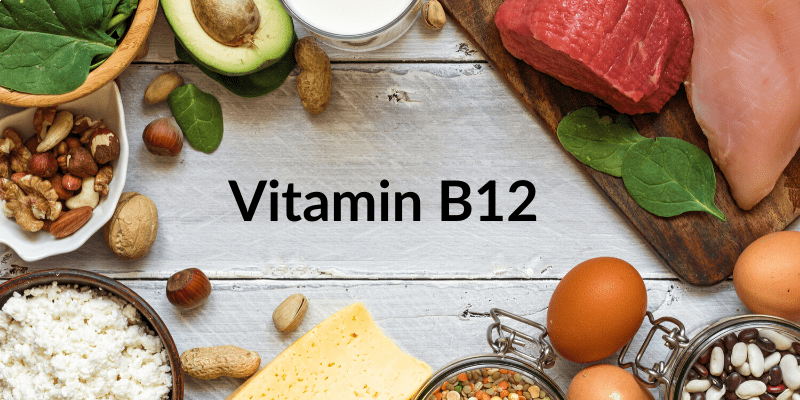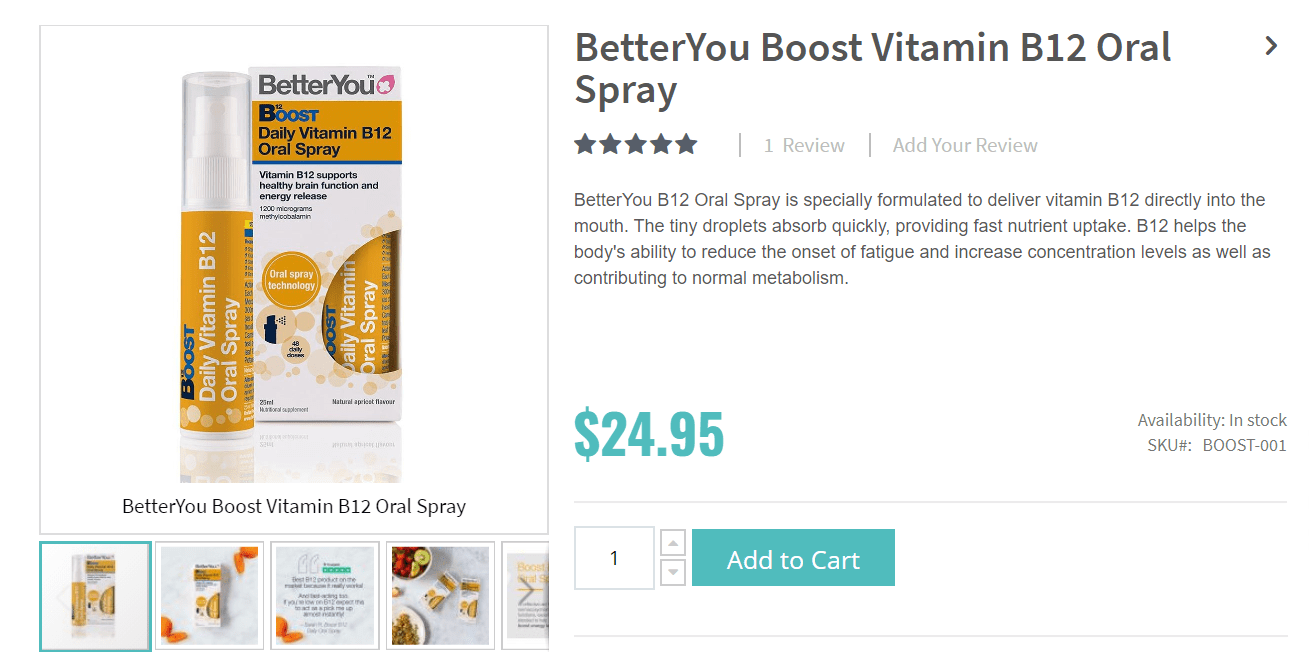What is Vitamin B12 good for?
Why do we need Vitamin B12?
Part of the Vitamin B group, Vitamin B12 is essential for maintaining all main functions within the body. B12 is important in the formation of Red Blood Cells and healthy DNA synthesis. It aids in supporting the nervous system and plays a large role within neurological and cognitive function.
Within pregnant women, it works in conjunction with folate to lower the risk of neural tube defects in babies.
B12 along with B6 aids to reduce homocysteine in the body. Elevated homocysteine is associated with an increased risk of cardiovascular disease.
What foods contain vitamin B12?
There are multiple forms of Vitamin B12. It is often found in supplements as cyanocobalamin, hydroxycobalamin and methylcobalamin. Methocobalamin is the more ‘active’ form and is utilised faster in the body. It can also be given as injections in the case of severe deficiency.
Vitamin B12 is found in animal products and is made by some algae and bacteria. Some foods are also fortified with B12 including milk and cereals.
The main dietary sources are;
• meat
• fish, sardines, tuna
• eggs
• yeast
Who should take Vitamin B12?
Deficiency of Vitamin B12 is often caused by malabsorption and is common among vegetarians and vegans.
Other risk factors and groups include;
• elderly
• those with malabsorption conditions including Chron’s and Coeliac disease
• oncology patients, stomach and colorectal
• breastfed babies of vegan mothers
• alcoholics
• gastric banding/ sleeve patients
• patients with gastritis
• those with pernicious anaemia
• those on acid lowering medications including proton pump inhibitors and metformin
What happens if you are deficient in B12?
Common signs of B12 deficiency include;
• fatigue, weakness
• constipation
• megaloblastic anaemia
• neurological symptoms including numb/ tingling hands and feet
• impaired memory, dementia, confusion
• red swollen tongue, sore mouth
• depression, irritability
B12 deficiency can also be masked by high folic acid levels, so it is always best to have both tested.
If you fall into the risk factor groups, have symptoms or testing has shown a deficiency, supplementation is the answer to restore and maintain adequate Vitamin B12 levels. Consult your pharmacist or doctor for dosage recommendations.
References
- Braun L, Cohen M. Herbs and Natural supplements. 4th edition. Chatswood: Elsevier 2015
- Natural Medicines 2016 Professional Monographs https://naturalmedicines.therapeuticresearch.com/databases/food,-herbs-supplements.aspx
- Australian Government, National health and Medical Research Council and Ministry of Health New Zealand. Nutrient Reference Values for Australia and New Zealand https://www.nrv.gov.au/nutrients
- National Institutes of Health. Vitamin B12 Fact Sheet for health Professionals. https://ods.od.nih.gov/factsheets/VitaminB12-HealthProfessional/


























